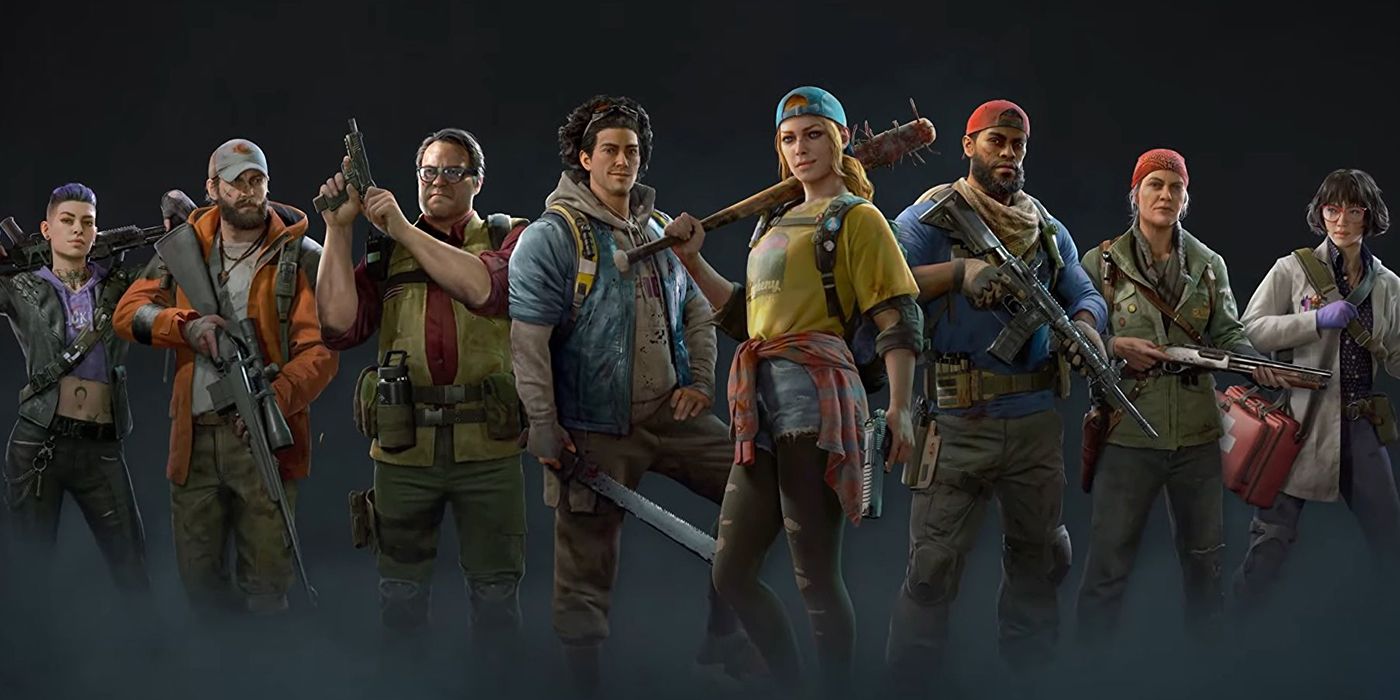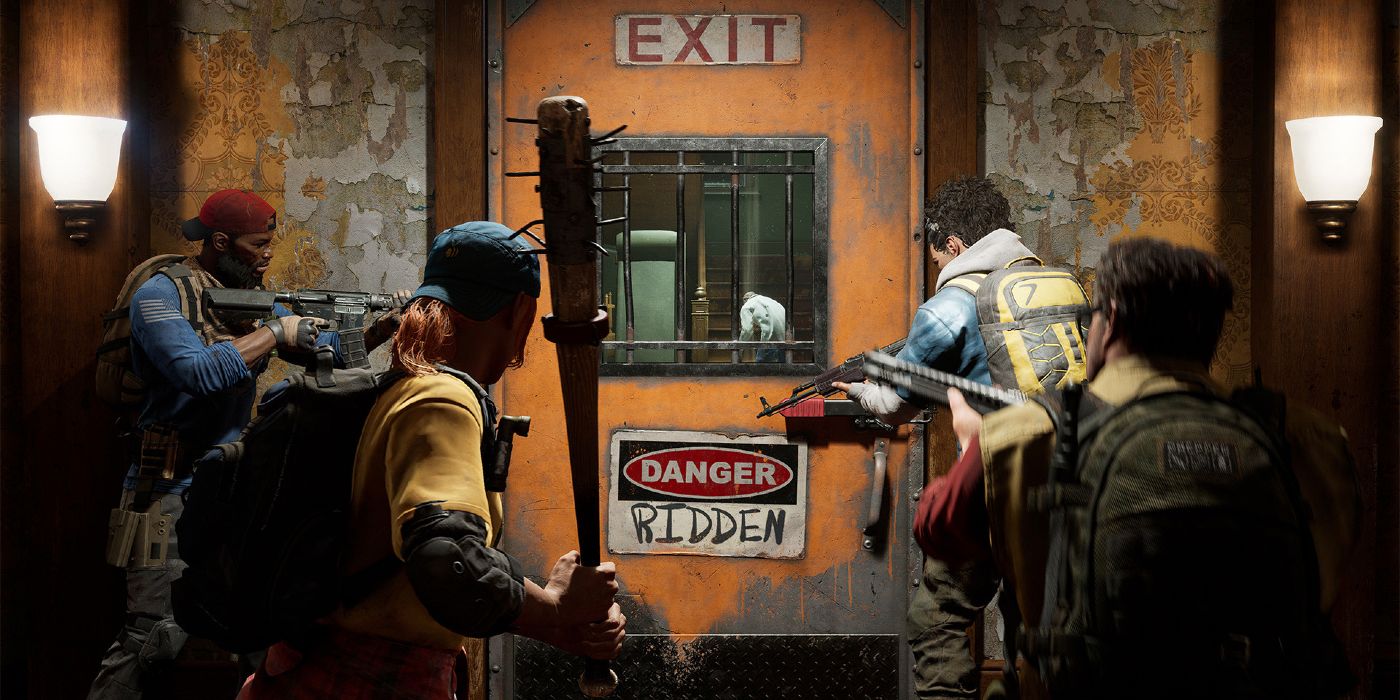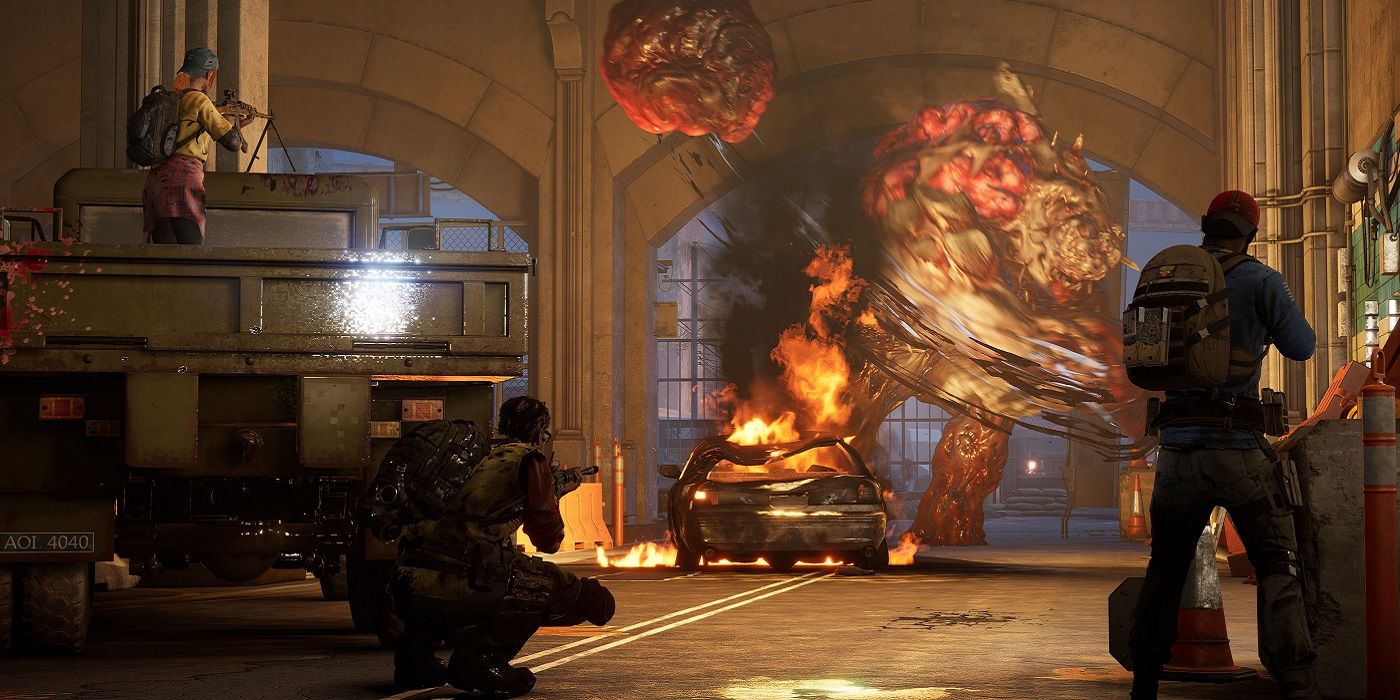
When Turtle Rock Studios announced that it was working on another co-op zombie survival franchise, the comparisons to Left 4 Dead were obvious and expected. The same studio that helped popularize co-op zombie survival as a subgenre altogether, returning with a new franchise in the same vein, is bound to unintentionally set expectations. Back 4 Blood is undoubtedly appealing to existing Left 4 Dead fans, but as the new franchise implies, the game is also poising itself as a new co-op game that's welcoming of new players. Having Left 4 Dead experience is not meant to be a requirement or prerequisite to enjoy Back 4 Blood's multiplayer offering.
That's exactly the sentiment Back 4 Blood executive producer Lianne Papp wanted to emphasize in an interview with Game Rant leading up to the open beta and full release. Turtle Rock Studios is clearly aware of the legacy of Left 4 Dead, but Back 4 Blood is clearly being designed as a distinct but familiar approach to zombie co-op survival. Multiple factors are contributing to balancing fan expectations, but Papp also emphasized that the development team is focused on what makes Back 4 Blood a distinct game as well. Back 4 Blood is not meant to just be Left 4 Dead again, even if some fans feel the similarities are evident, as Turtle Rock believes there's a balance.
RELATED: Back 4 Blood Beta Hits Impressive Concurrent Player Count

Both Left 4 Dead and Back 4 Blood, at a base level, offer similar modes: a PvE campaign mode with several acts, and a PvP "Swarm" mode that pits Cleaners vs. Ridden. However, the differences lie in the details. While PvE is arguably the most similar game type to Left 4 Dead's PvE, but Swarm is an entirely new beast. Rather than a versus mode within the main campaign, Swarm PvP is a stand-off mode that's balanced separately from PvE. The 4v4 survival mode has shorter game time, alongside a totally different game plan, that's basically unlike anything in Left 4 Dead.
Granted, Left 4 Dead comparisons are a double-edged sword: Some players are excited to get a similar but modern Left 4 Dead-style experience that's new, while others expecting a true-to-form Left 4 Dead experience may be unintentionally setting themselves up for disappointment. In general, executive producer Lianne Papp was fully aware of these comparisons from the beginning.
"I would say that anybody coming into a zombie shooter definitely has certain expectations, right? Our focus really was how do we make this a fun, intuitive experience that people enjoy and want to invite their friends to. That's really what we focused on. The development team has a diverse background with the games that we've played, where we come from, and we're also all gamers, and we play lots of different games. We drew on all of those experiences."
RELATED: How Back 4 Blood's PvP Aims to Be Distinct, Separate From PvE

To some extent, these comparisons to Turtle Rock Studios' formative co-op game are understandable from a fan perspective. It's been a long time since Turtle Rock Studios has developed a traditional co-op survival game in the same vein as Left 4 Dead, with the only similar experience being Evolve. Many have been missing a traditional Left 4 Dead game, especially with Left 4 Dead 2 only just recently receiving its final update through a fan update made official by Valve. However, even putting aside Back 4 Blood's similarities with Left 4 Dead, Papp discussed the development of Back 4 Blood's own identity:
"We always refocus on how do we make it, and how is it 'Back 4 Blood'? How is it the vision that we have for this game? We have three tenets that we were pushing towards. We wanted to make sure that there was that cooperative gameplay, because that's what you're looking for out of a zombie shooter. There's four of you, you want co-op elements. We wanted that replayability, which is where the card system was massive, as well as the game's Director [AI system]. And then we have this of idea accessibility, and I'll explain what I mean by that."
For those that are familiar with games like Destiny 2, or Final Fantasy 14, or other MMO-style games or live service elements, the term of "F.O.M.O." comes up in discussion often. It's the seemingly eternal concept and struggle of live service games that are always on, always evolving with new content. People who want to take a break and come back to the game believe they will feel the "fear of missing out" that so many other live service games can evoke in burnt out players. From Papp's perspective, the idea with Back 4 Blood's development and the implementation of new features was to always keep the game as accessible as possible at a base level.
"When you play certain other games that have progression in them, you can play for two or three hundred hours, and you get an item level, a gear level, and you get access to different areas. If I come to play with you and I'm like 'Hey, let's team up,' you'll go 'Well did you do these 10 things that you have to do before you're at my level?' and I'll be like 'Oh OK, no I didn't.' And that kind of sucks. So, one of the things we wanted to make sure was that Back 4 Blood was something that you could have a new friend jump in and immediately play with you."
Much like Left 4 Dead, keeping Back 4 Blood accessible at a base level is key to the game's success to all fans. Left 4 Dead fans, as well as gaming fans in general, ideally should be able to find something to love in Back 4 Blood.
Back 4 Blood releases on October 12, 2021, for PC, PS4, PS5, Xbox One, and Xbox Series X/S.
MORE: Back 4 Blood Preview: Left 4 Dead-Style Survival with a PvP Versus Twist

